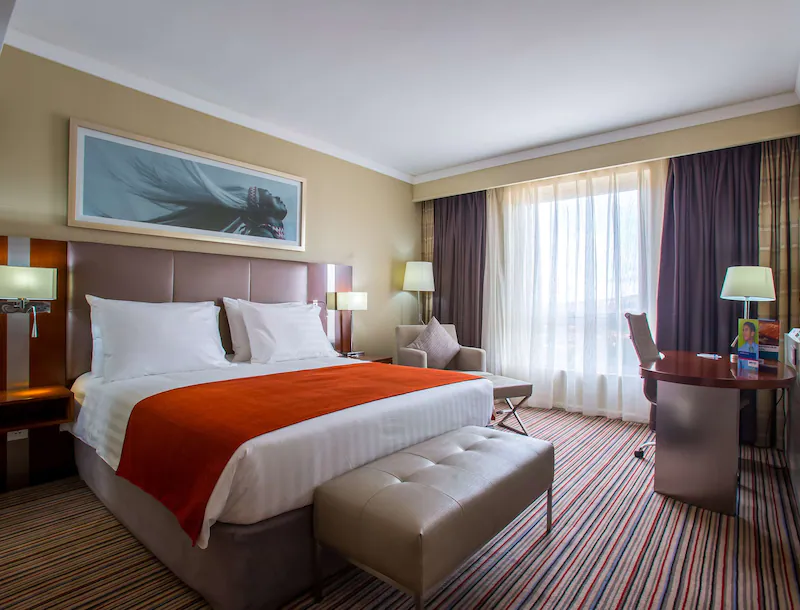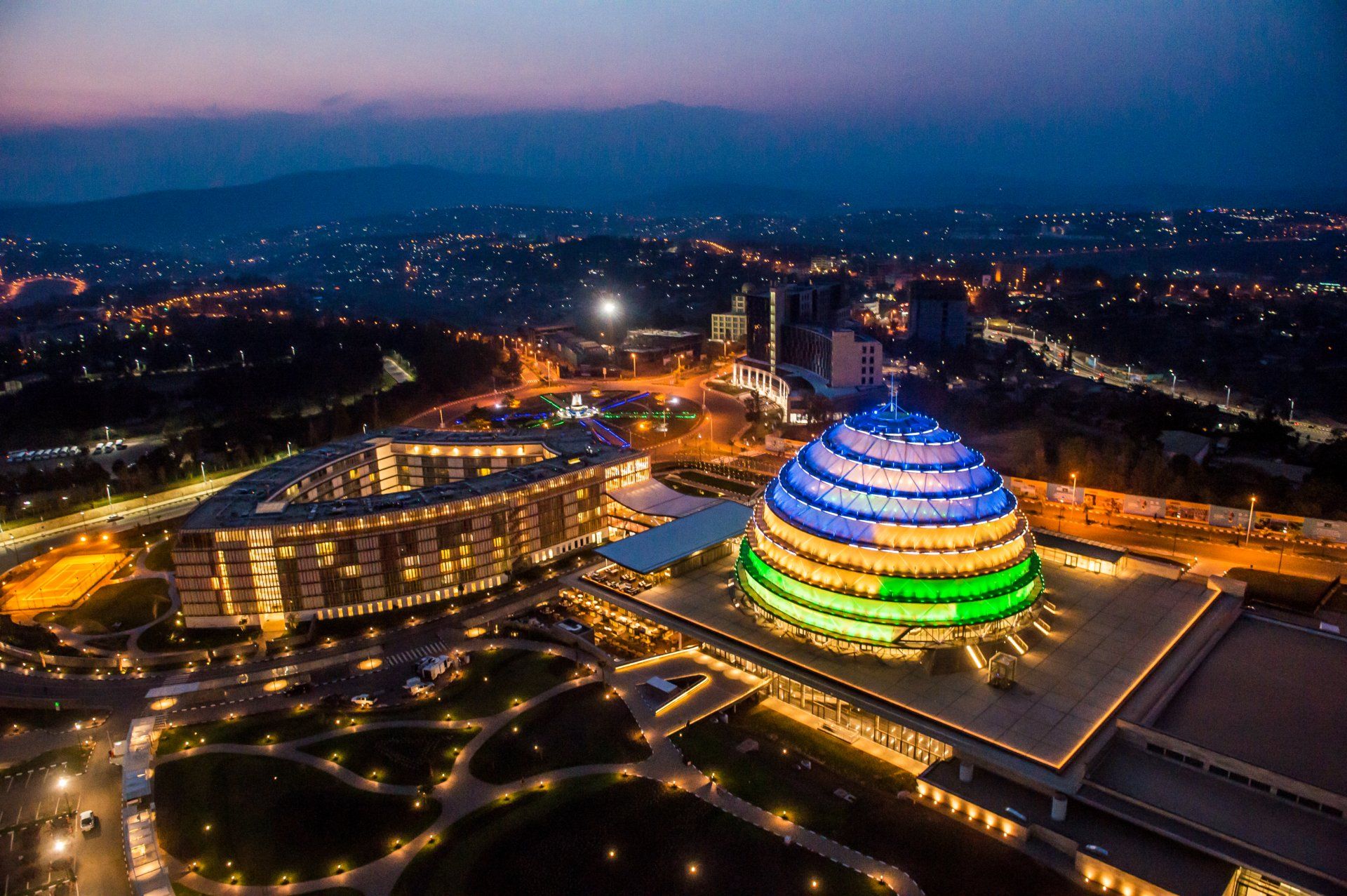
Kigali City Tour
Kigali – the capital city of Rwanda, was founded in 1907 as a tiny colonial outpost by Dr. Richard Kandt, the very first resident German colonialist in Rwanda who lived at the foothills of Mounts Jali and Kigali in the middle of the city; today, this has been turned into a Natural History Museum honoring his great work; it is a popular stop for city tours. Kigali city is divided into three districts: Nyarugenge, Gasabo, and Kicukiro, and has a population of close to one million people. Your Kigali City Tour begins with a historic journey through the first modern buildings from which this capital was founded, to the rapidly developing neighborhoods that are changing the city’s appearance.
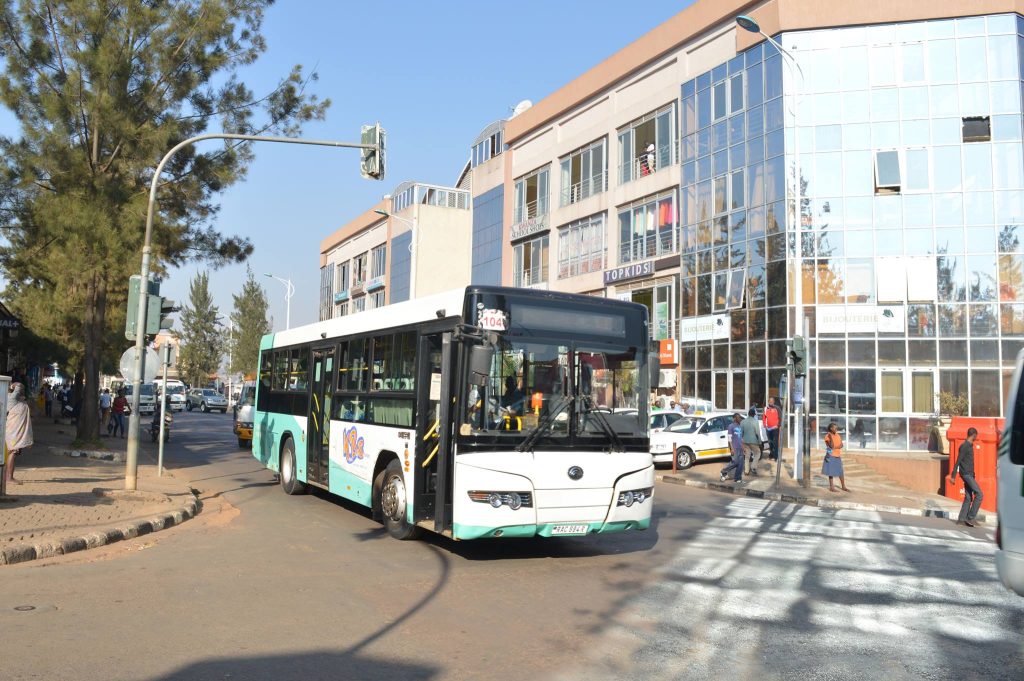
Kigali is one of Africa’s cleanest, friendliest, and safest cities, attracting a large number of visitors as well as investors. Guests will be guided through Kigali’s older commercial “quarters,” residential areas, and business areas, as well as some of the historic sites established in memory of the 1994 brutal Tutsi Genocide. A venture into the Kigali city tour will also help guests learn more about the city’s various neighborhoods and local attractions.
Because there are big differences in seasons, the city can be visited at any time of year. More because of its impeccable cleanliness, it has been able to host several high-level conferences and activities, attracting delegates from all over the world.
Although Kigali is well-known for its landmarks and culture, it can be difficult for first-time visitors to navigate the city’s many highlights. Explore the city like a local with a travel guide on a tour that includes Mount Kigali, an art exhibition, local cafes, and the Genocide Memorial, just to mention a few.
Places to visit while on Kigali City Tour
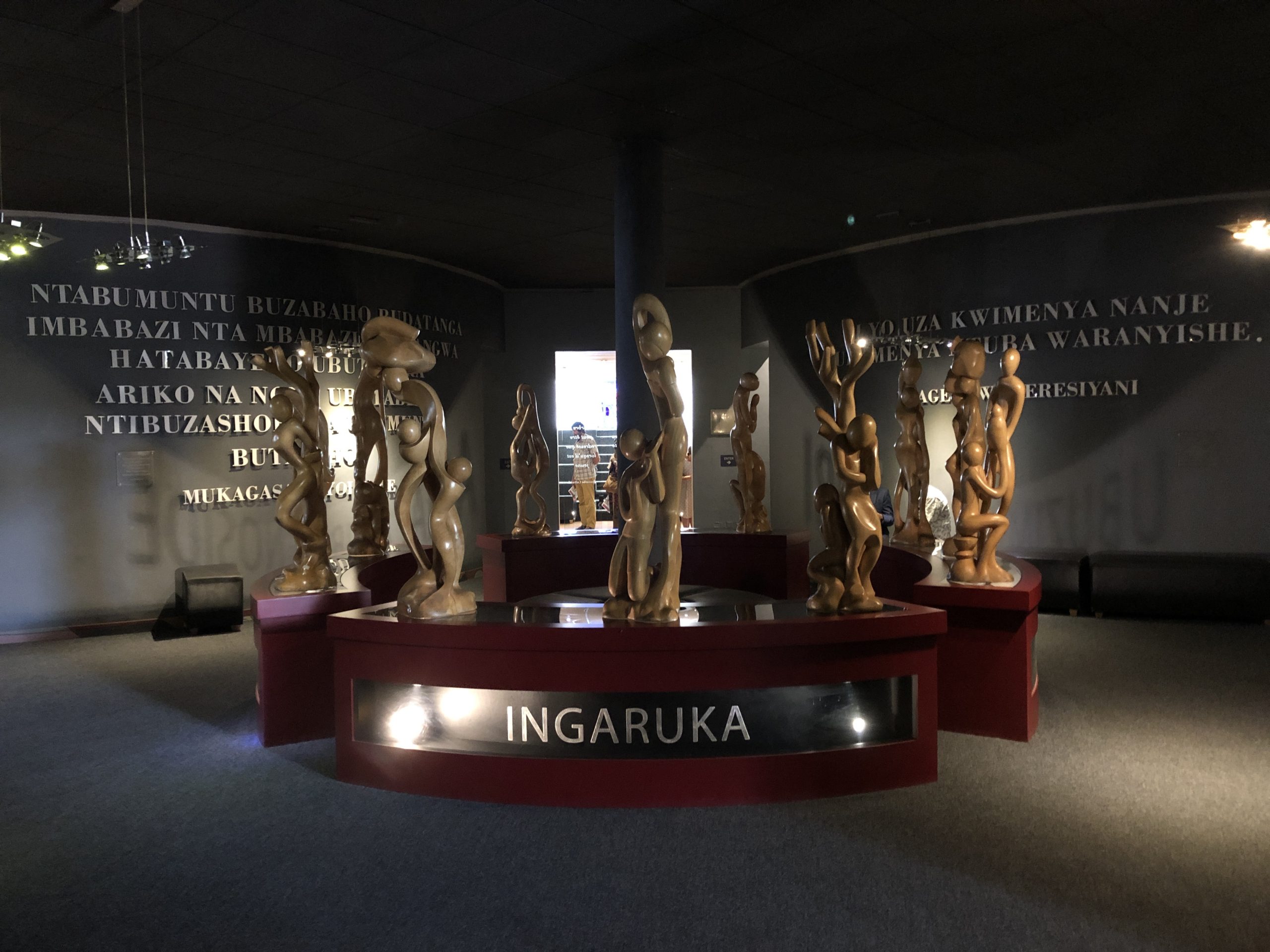
Kigali Genocide Memorial
Before venturing out of the capital and into Rwanda’s famous attractions like National Parks, you should probably pay a visit to the Genocide Memorial Center in Kigali. The Museum houses the skeletal remains of approximately 250,000 people (mostly the Tutsi) who were brutally murdered by the Interahamwe (Hutu extremists).
The center is divided into three sections: one for children killed during the genocide, one for adults, and one for genocides that occurred in various parts of the world.
While on a tour of the Kigali Memorial Centre, you will learn a lot about what happened before, during, and after the 1994 genocide while visiting the site. You can learn more about the tragic event by watching short videos or listening to what the local Guides have to say.
The experience can be emotional, but the main goal of the exhibits is to educate people, particularly the younger generation about the horrors of genocide so that it never happens again.
Inema Arts Centre
Since its inception in 2012, the Inema Arts Center, which was founded by a pair of brothers, who happened to both self-taught painters on a mission to “tap the untapped potential of art in Rwanda,” has become the place to see contemporary art in Kigali. The building’s exteriors are adorned with vibrant murals that are impossible to overlook.
The interiors of Inema Arts Center are dedicated to gallery space for ten artists in residence. Depending on the mix of artists on display during their visit, tourists may see modern takes on traditional African crafts, abstract and expressive portraits, mixed-media works depicting scenes of African life, and some of the best artwork in Rwanda.
The invitation to view the work comes with no obligation to buy, but if you do want to take something home, the center can help you arrange to ship. The Inema Arts Center also hosts weekly dance performances, art-inspired yoga classes, gallery tours, and concerts, in addition to visual art. To learn about things to do during your visit, contact the center directly.
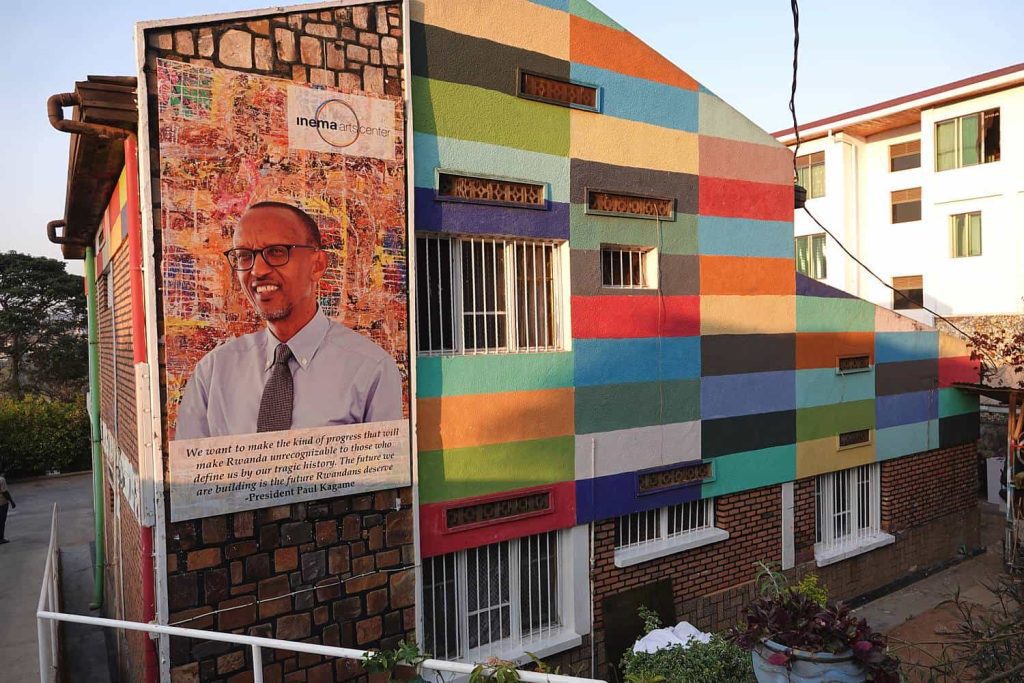

Kimironko Market
Kigali’s largest and busiest market provides an exciting afternoon of sightseeing. Hundreds of vendors have set up shop in the vast warehouse complex, selling everything from bed sheets and carved masks to a bounty of produce sourced from all over East Africa. You’ll be walking in single file through narrow passageways, ducking beneath hanging t-shirts and negotiating space with women carrying large baskets on their heads.
If you only take one thing away from this market, make it bespoke clothing. Shopkeepers here will assist you in selecting vibrant, patterned fabrics from the thousands of options available. Then, you’ll choose from a variety of garment styles, including tank tops and wide-leg pants, as well as leggings and dresses, before being measured and handing the order off to one of the on-site tailors.
In about an hour, you’ll have custom-made clothes to wear on the rest of your Kigali adventures (and a one-of-a-kind souvenir to take home!). Make sure you try them on before leaving the store in case you need to make any adjustments. It’s natural to want to photograph this exciting slice of Kigali life. Many of the shopkeepers here, however, are camera-shy and prefer not to be photographed. When taking photographs, use caution and always obtain permission before photographing people.
Mount Kigali
You can probably see the city’s main natural attraction, Mount Kigali, from anywhere in the city. Tourists can hike this gentle slope from near the Nyamirambo Stadium in an hour or two and enjoy incredible views of the city from a variety of vantage points. The short hike also includes a beautiful eucalyptus forest, a coffee plantation, and a series of rustic neighborhoods.
The trail can be difficult to navigate, so hiring a guide for your first trip is recommended. Request that your hotel concierge connects you with a local expert.
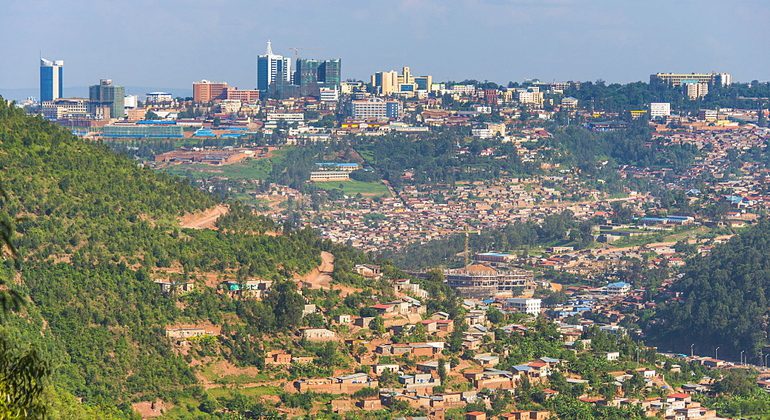
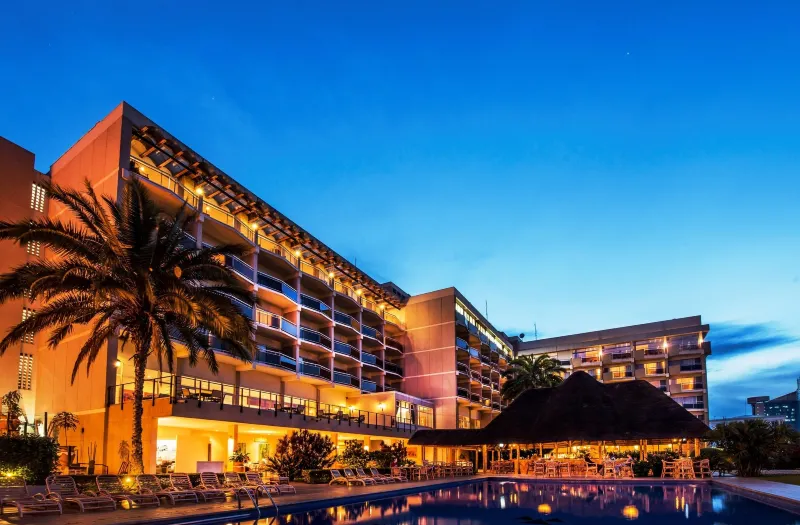
Hotel des Mille Collines
Despite its current lavishness, Hotel des Mille Collines has a dark history. During the 1994 genocide, an influential hotel manager assisted in the concealment of many Tutsis from Interahamwe militias looking for them. What happened is depicted in the well-known film “Hotel Rwanda” about the Rwanda genocide.
Tourists enjoy staying at the hotel not only for the luxury amenities but also for its history. The Hotel des Mille Collines has 112 guest rooms, a conference room, a bar, a restaurant, a swimming pool, a health club, a lounge area, gardens, and other amenities.
Local Dance Performances
One of the quickest ways to learn about Rwandan culture and traditions while on a Kigali City Tour is to attend a performance by Rwandan dance groups. The most common is the Intore Dance Troupe. All good hotels organize evening dance performances for their guests to enjoy as they unwind and end the day. The excitement, energy, and grace of the performer are used to assess the quality of the Intore Dance. Folk stories or other narrations about Kinyarwanda culture may interrupt the dance. As an observer, you are always welcome to participate at some point.
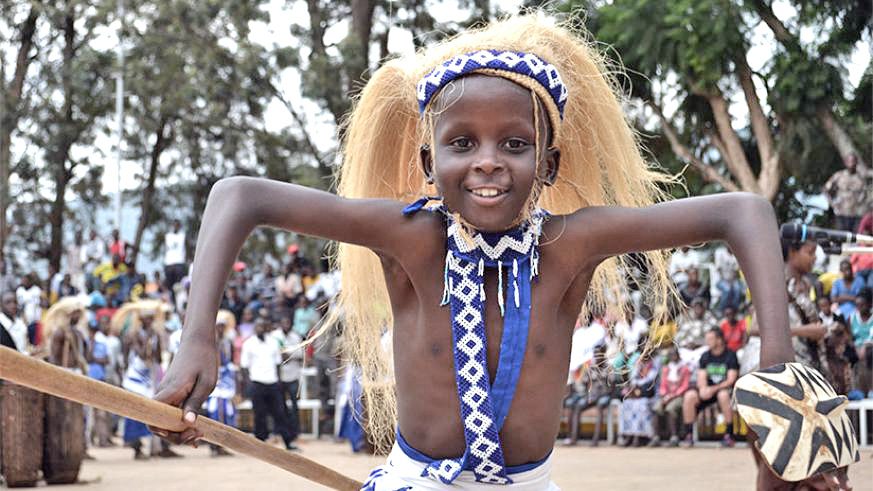
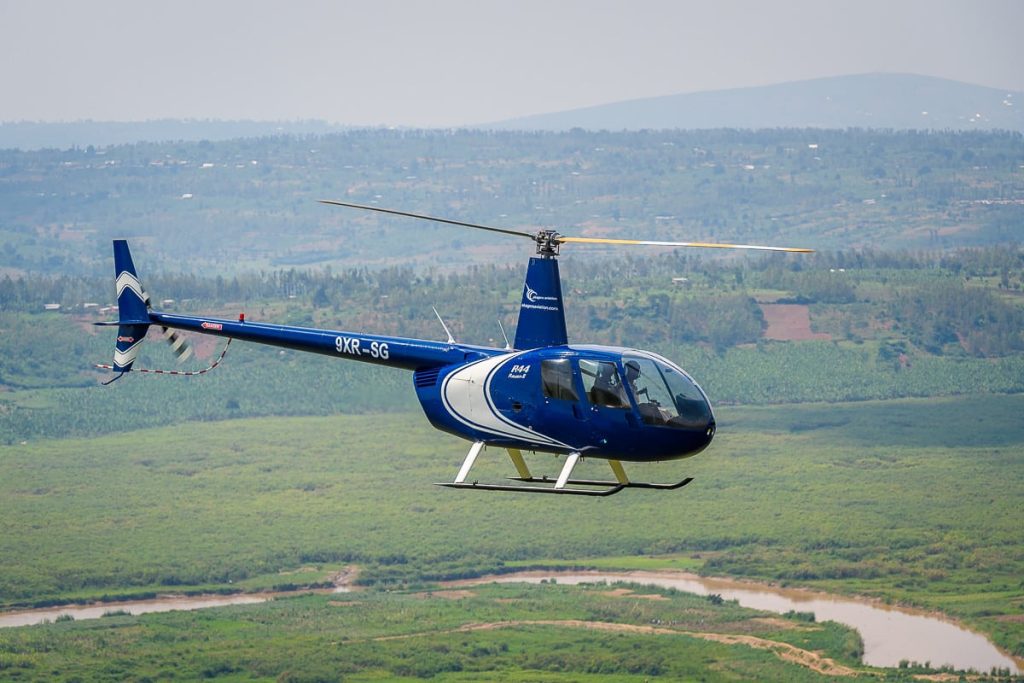
Helicopter Tours
Akagera Aviation organizes helicopter tours in Kigali for those interested in getting an aerial view of the city and surrounding countryside. A helicopter tour can range in price from $500 to $4500, depending on the route.
Regardless of the route you take, you will be rewarded with stunning views of Rwanda’s 1,000 hills and the majestic Virunga volcanoes. Helicopter tours can also be arranged all the way to Nyungwe National Park for spectacular views of the vast forest and the vast Virunga ranges that stretch all the way to the Democratic Republic of the Congo. All flights originate and terminate in Kigali.
Camp Kigali Memorial
The Camp Kigali Memorial is a quiet, sacred space just steps away from the Kigali Serena Hotel and the Kigali Marriott Hotel, where 10 Belgian soldiers became some of the earliest victims of the Rwandan genocide. General Dallaire had dispatched them to protect the home of moderate Prime Minister Agathe Uwilingiyimana. The Belgians were apprehended, their weapons seized, and brought to this location in Kigali, where they were murdered.
The Camp Kigali Memorial now pays tribute to each of these victims with ten solemn stone pillars rising in a circle from a pebble platform. Examine the horizontal cuts carved into each column carefully; they represent the age of each soldier. The pillars’ tops have been broken, symbolizing the soldiers’ brutal demise. Each soldier’s initials can be found at the base of each stone.
A small museum, just outside the memorial, is riddled with bullet holes from that fateful day. More than just a somber tourist attraction, the Camp Kigali Memorial is a sobering space to comprehend the horrors of what Rwandans endured in 1994. It provides visitors with a more intimate understanding of the genocide and a greater appreciation for Rwanda’s eventual unification.
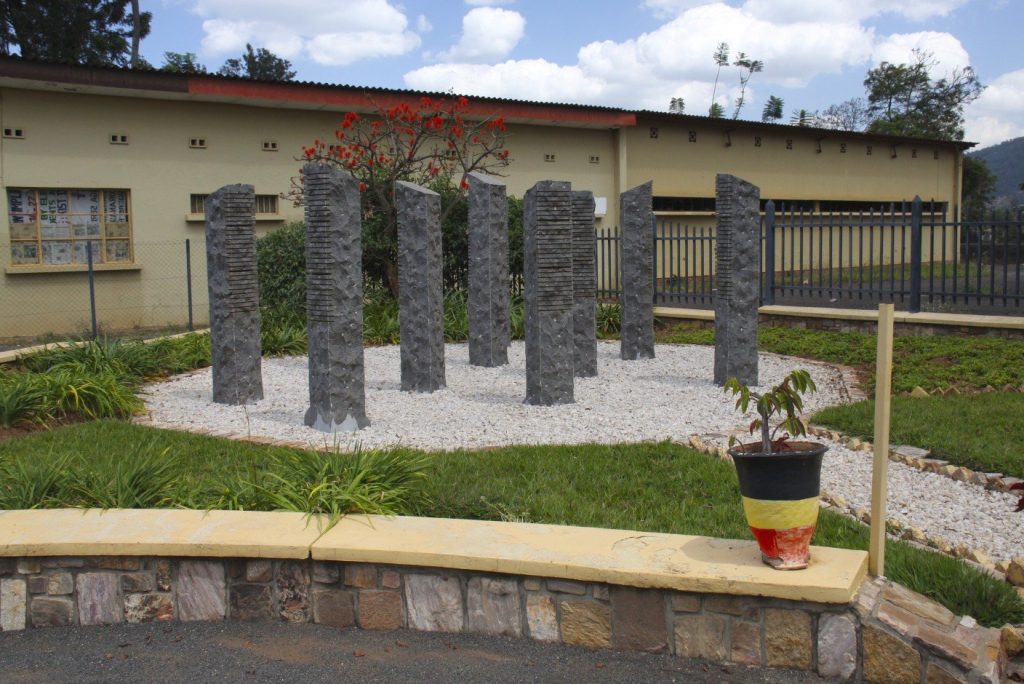
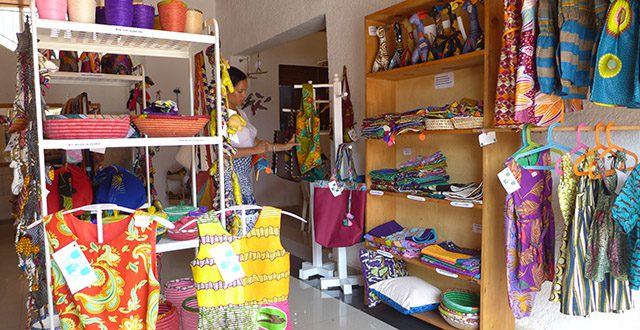
Namirambo Women’s Centre
This is a pro-women NGO on Kigali’s outskirts. It was founded in 2007 by a group of local women with the goal of ending gender-based violence. This Tourist Attractions in Kigali now runs various projects to assist women in enhancing their local capacities for self-reliance and livelihood, particularly after the loss of a spouse.
The women have learned computer skills, English, fashion design, hair styling, pedicure, manicure, and craft-making. City tours are also organized by the Nyamirambo Women’s Centre. The State House Museum, local shops, and the National History Museum are all included in these tours. Supporting the Centre is one way to empower Kigali’s vulnerable women. The center also invites tourists to participate in traditional cooking classes and basket-weaving workshops. The experiences will give you an insider’s view of Rwandan culture.
Amahoro Stadium
Amahoro Stadium is Rwanda’s best venue for sports and entertainment. Sitting in the stands with up to 25,000 other fans to watch Rayon Sports Football Club or Armée Patriotique Rwandaise Football Club compete is an unforgettable experience that immerses tourists in Rwanda’s passion for soccer.
Amahoro, which means “peace,” is more than just a sports facility; it’s also a historical site. During the Rwandan genocide, approximately 12,000 people sought refuge at the stadium for weeks, trying to survive with nothing more than the clothes on their backs under the open sky. The stadium pays tribute to this significant piece of history by hosting commemorative events on the anniversary of the genocide.
Rugby matches, live performances, marathons, and other events are also held at the stadium. Check the local newspapers for event listings, or even ask your guide about what’s going on in the stadium during your tour, and grab your ultimate chance. A 24-month renovation project at the stadium began in March 2022. It will eventually increase the capacity of the attraction to a whopping 45,000 people, so expect even larger crowds in the future.
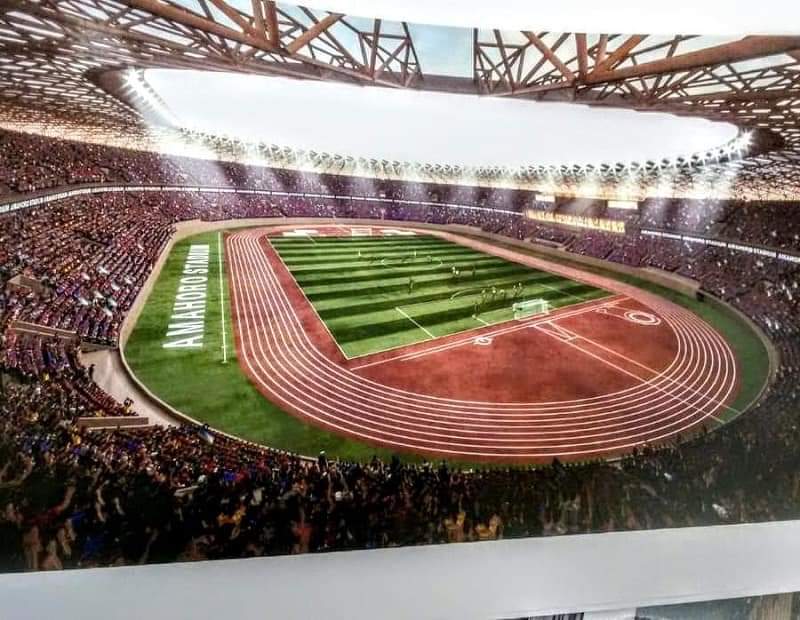
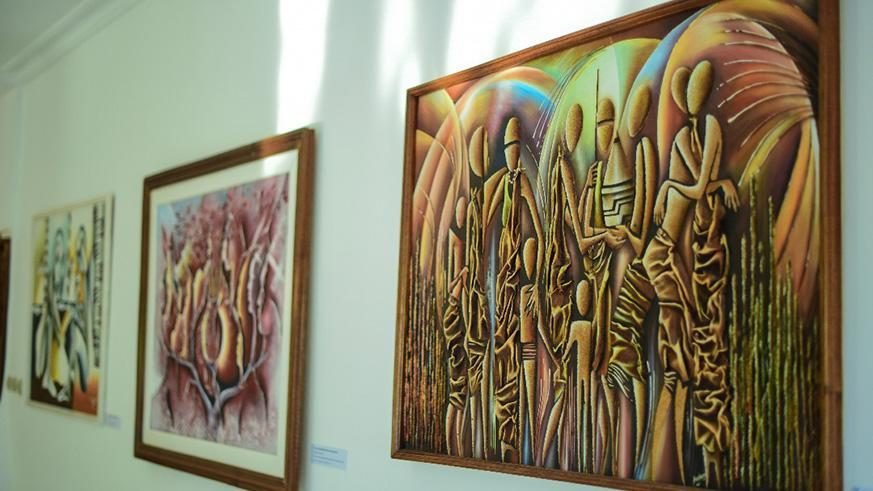
The Rwanda Art Museum
The Inema Arts Center isn’t Kigali’s only place to see art. Visitors can also visit the Rwanda Art Museum, which is housed in the former Presidential Palace on the outskirts of Kigali. It is one of eight national museums in the country.
The Rwanda Art Museum, which opened in May 2018, is Rwanda’s only contemporary art museum. It displays the diversity of local creativity as well as works by international artists. More than 100 works of art are on display in the expansive space, including ceramics, sculptures, paintings, and experimental pieces created in a variety of mediums.
Surprisingly, the museum’s grounds also house the wreckage of the presidential plane that crashed on April 6, 1994, just before the start of the Genocide. Pieces of the Falcon 50 aircraft rise like pinnacles from the grass.
Where to stay while on Kigali City Tour
While on your amazing tour to the capital city of Rwanda – Kigali, there are various accommodations to choose from as you consider where to stay. These accommodations range from budget to midrange, all the way to luxury. This helps any traveler to enjoy the comfort of the clean city of Rwanda, no matter the travel budget. While on a Kigali city tour, these are some of the accommodation options that should be checked out for the best comfort:
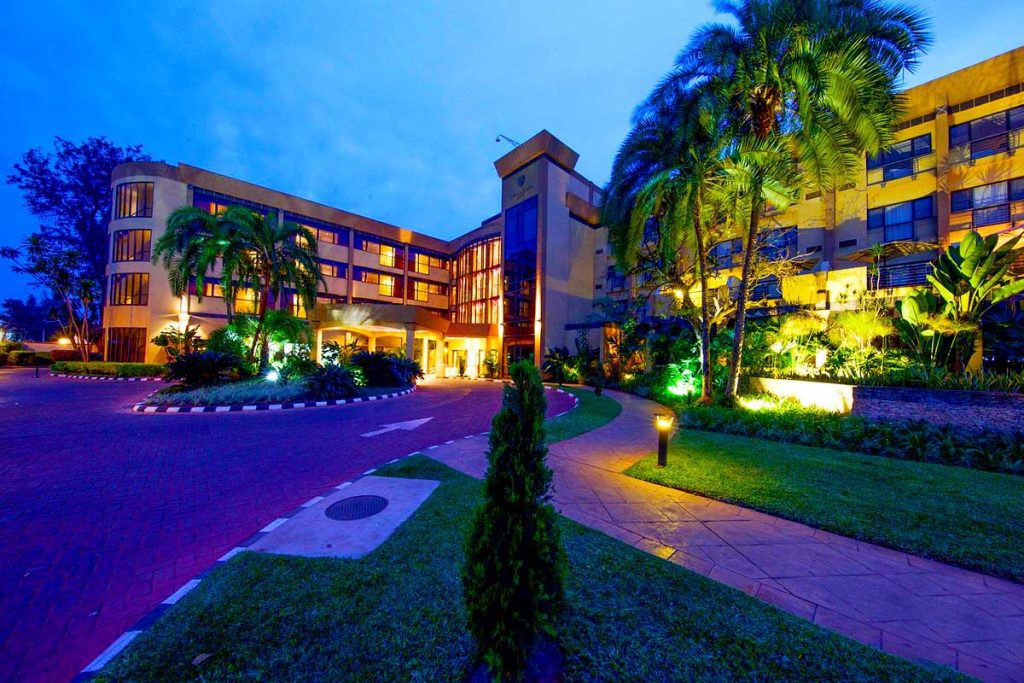
Kigali Serena Hotel:
Those looking for the best accommodations and services should stay at the Kigali Serena Hotel. It is conveniently located in Kigali’s central business district and features sensational Rwandan art that highlights the plush lounge, where you can relax or hold a meeting.
Visit the Maisha Health Spa for expert wellness advice, or the Maisha Health Club for a workout. This hotel has 148 rooms and offers a variety of facilities and amenities, including some accessible rooms for physically challenged travelers.
Guests who require a smoking room should notify the hotel in advance. Dine in one of the hotel’s two restaurants, which serve traditional Rwandan and international fare.
Kigali Marriott Hotel:
The Marriott Hotel Kigali, located in downtown Kigali with easy access to the town’s main commercial center, represents complete luxury and exceptional service, facilities, and amenities for discerning travelers.
They have 254 air-conditioned rooms and suites with floor-to-ceiling glass panels that provide breathtaking views of the city spread below you. There are 229 rooms and 25 suites to choose from, including Deluxe Rooms, Club Floor Rooms, and Junior Suites for up to 3 guests. Executive Suites and Presidential Suites are available for larger families and groups of four or more people.
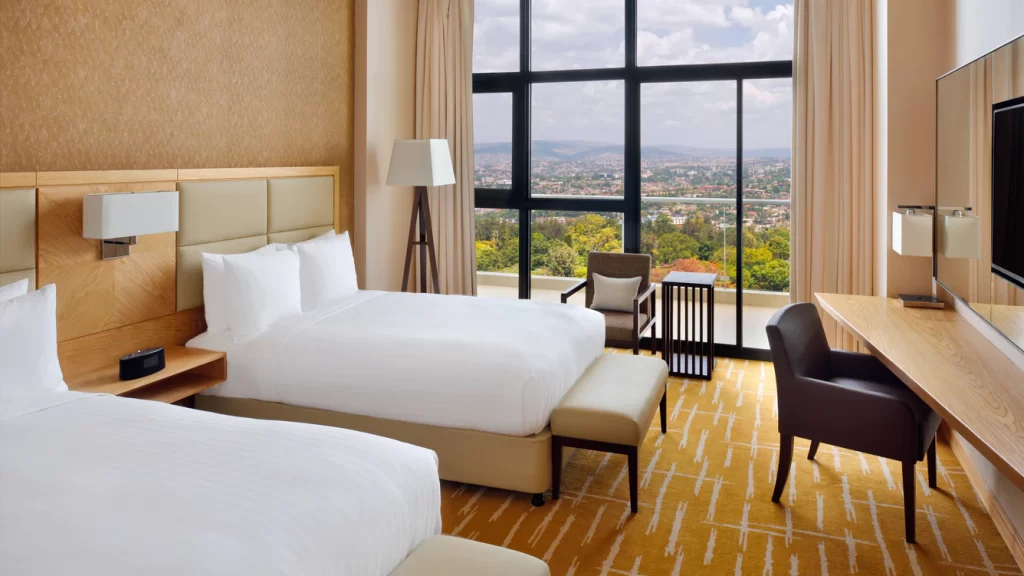
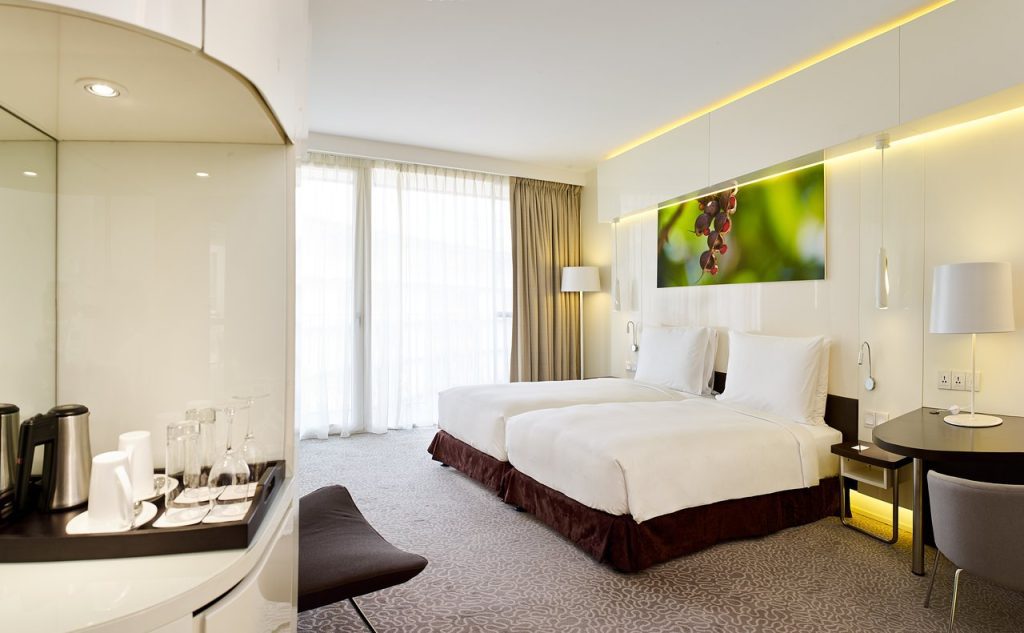
The Radisson Blu Kigali:
This hotel offers all of the luxuries and amenities that one would expect from a global hospitality chain. The hotel, which is located 5 kilometers from Kigali International Airport, has 292 rooms and suites that are ideal for both luxury tourists and business travelers. There are 209 standard rooms and 4 accessible rooms available for special guests. There are also 68 Business Rooms, 5 Junior Suites, 5 Presidential Suites, and 1 exceptional Diplomat Suite at the hotel. Each of the air-conditioned rooms and suites has a private balcony with breathtaking views of Kigali’s green hills.
Park Inn by Radisson Kigali:
The Park Inn in Kigali, part of the Radisson international hotel chain, is a mid-range option for both tourists and business travelers. There are 161 non-smoking rooms available, including 123 standard rooms and 34 superior rooms. Guests seeking more space may prefer one of the four one-bedroom suites, which feature separate living and dining areas as well as a guest bathroom.
Other room amenities include a minibar, a desk and chair, an electronic safe, and a flat-screen TV. Bathrooms with ensuites have twin or single vanities, a shower stall or bathtub, and bathrobes and slippers.
